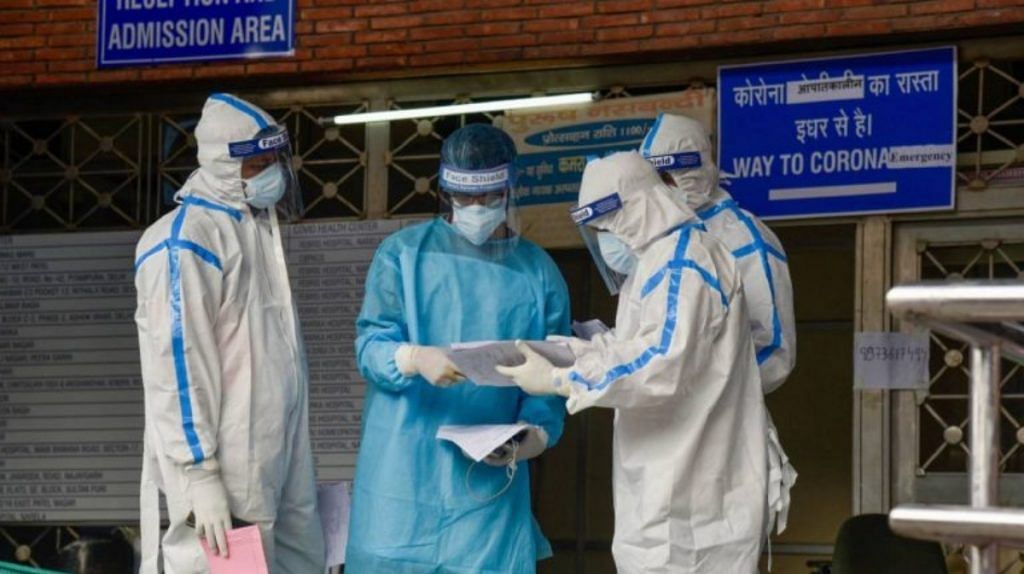New Delhi: A study by doctors of UK’s Edinburgh University has found abnormalities in heart scans of Covid-19 patients, which can harm the ability to pump blood or even lead to organ failure in some life-threatening cases.
The scans showed varying degrees of heart damage in 55 per cent of the Covid-19 patients. The researchers also found that one in every eight patients with no pre-existing heart conditions developed severe cardiac disease.
The study, involving 1,216 patients from 69 countries, was published in the European Heart Journal, Cardiovascular Imaging, on 18 June. The patients went through heart scans, which are called echocardiograms.
After examining the echocardiograms, the doctors found that one in every seven cases showed signs of “severe abnormalities”.
Of the 1,216 patients chosen for the study, 813 had tested positive for Covid-19 and 298 were suspected coronavirus patients. Authors of the study reportedly said that due to design of the study, the remaining 105 were assumed to have Covid-19.
Also read: Asthma does not increase risk or severity of Covid-19, says new study
Damage mostly found in ventricles
In more than a third of the patients examined, the heart scans revealed that the damage was found in ventricles.
Moreover, 3 per cent of the patients experienced heart attacks and another 3 per cent witnessed inflamed heart tissues. Out of the total cases examined, a majority had no history of heart disease before the scans were conducted.
Dr Anda Bularga, researcher at Edinburgh, who also worked on the study, said: “The proportion with an abnormal scan was really high.”
“Half of them had an abnormal scan, which makes us think this could be because of the viral infection,” he added.
The findings of this study have shown how critical scans can be to identify patients who have serious heart problems that happened due to Covid-19.
One out of three patients in the study changed their medicine intake due to the results of the scans. For instance, they started taking drugs for heart failure.
Dr Bularga explained: “If a doctor suspects there’s a problem with the heart, these scans should be done.”
Why were doctors previously hesitant about heart scans?
Professor Marc Dweck, co-author of the study and consultant cardiologist at the University of Edinburgh, said that Covid-19 is a “complex, multi-system disease”, which can have effects on several parts of the body.
He explained why doctors had previously been hesitant to conduct echocardiograms. “Many doctors have been hesitant to order echocardiograms for patients with Covid-19 because it’s an added procedure, which involves close contact with patients. Our work shows that these scans are important — they improved the treatment for a third of patients who received them.”
“Damage to the heart is known to occur in severe flu, but we were surprised to see so many patients with damage to their heart with Covid-19 and so many patients with severe dysfunction,” he added.
Also read: Controversies over coronavirus research show science isn’t broken
